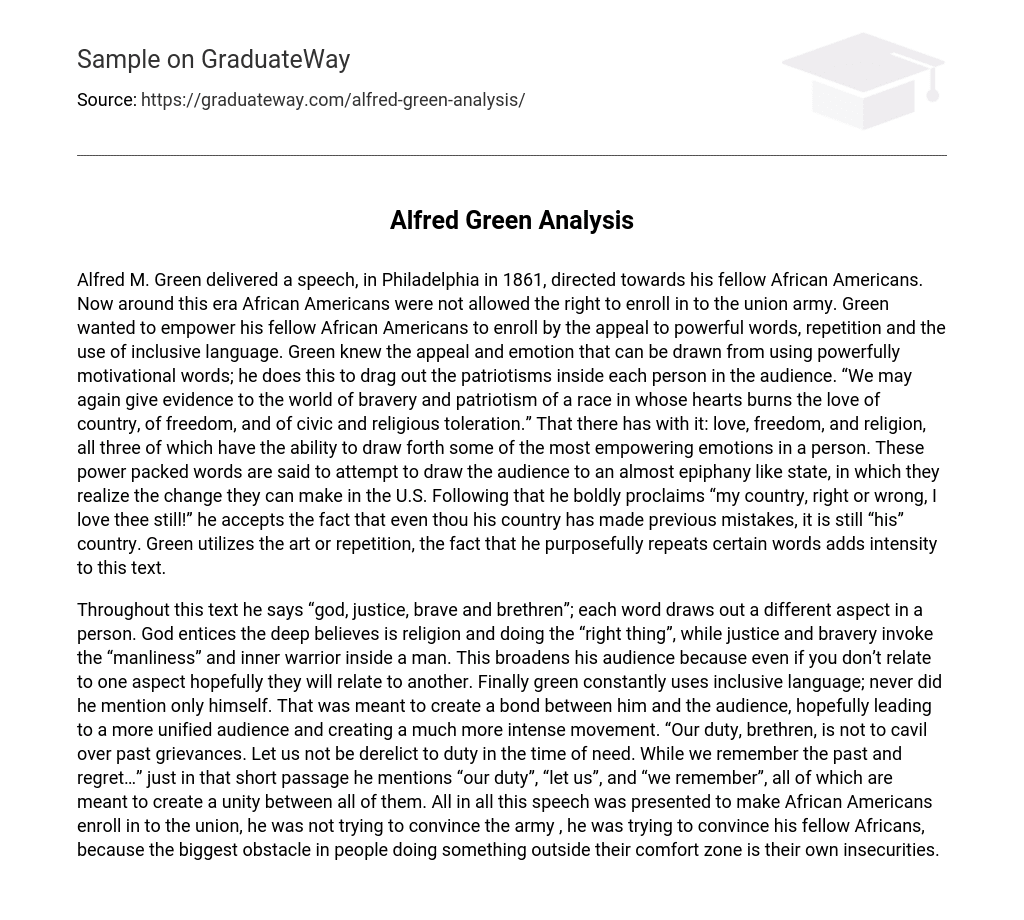In 1861, Alfred M. Green delivered a speech in Philadelphia, addressing his fellow African Americans who were not allowed to join the union army at the time. Green aimed to empower them to enroll through the use of powerful words, repetition, and inclusive language. Aware of the emotional impact of motivational words, Green sought to ignite patriotism within the audience by emphasizing their love for country, freedom, and religious tolerance. These words have the potential to elicit strong emotions and bring about a realization of the audience’s capacity for change in the United States. Additionally, Green boldly declares his unwavering love for his country, acknowledging its past mistakes but reaffirming his loyalty. The use of repetition further intensifies the message conveyed in the speech.
The author of this passage repeatedly mentions the words “god,” “justice,” “brave,” and “brethren,” each word highlighting a different aspect of a person. The belief in god appeals to one’s religious faith and the desire to do what is morally right, while notions of justice and bravery tap into one’s masculinity and inner warrior. This inclusivity broadens the audience by allowing individuals to relate to different aspects. The author consistently uses inclusive language, never limiting himself to personal experiences. This fosters a sense of connection between the author and the audience, aiming to create a more unified and passionate movement. For example, in a short passage, he emphasizes phrases like “our duty,” “let us,” and “we remember,” all serving the purpose of creating unity among them. Overall, this speech’s objective is to encourage African Americans to join the Union, not targeting the army, but rather persuading his fellow Africans. The author recognizes that people’s insecurities often hinder them from stepping outside their comfort zones.





